Introduction: The Future of Medicine is Here
The only thing that hurts more than paying an income tax is not having to pay an income tax. — Thomas Dewar. This quote might make you chuckle, but it strikes at the heart of human advancement—striving through discomfort and challenge to reach new heights. Just like taxes, dealing with healthcare can be daunting, but the biggest rewards often come from the most complex challenges. Here, we stand on the brink of a medical revolution, propelled by AI-powered gene therapy that promises customized cures for every patient.
Picture a doctor treating not just a disease, but an individual, tailoring every aspect of care. What once seemed out of reach is rapidly gaining momentum due to breakthroughs in artificial intelligence and personalized medicine. Amidst all this innovation, questions bubble up—like a never-ending fountain of curiosity: Could AI be our true panacea? Will gene therapy finally defeat long-elusive diseases?
Let's unfurl the narratives spun by Elon Musk, Ray Kurzweil, and Jennifer Doudna as we embark on this journey. Through the collaborative dance of AI diagnostics and gene therapies, we peek into a universe where medicine is more than a guessing game—it's a deeply personal evolution. Step by dot by step, we will connect these narratives, revealing how data-driven solutions illuminate the path to personalized healthcare.
The Intersection of AI and Gene Therapy
Dive into the world of gene therapy, and you're entering a realm where science fiction meets reality. While it might sound like something out of a futuristic novel, gene therapy has roots in some age-old practices—akin to nature's ancient wisdom interwoven with today's turbo-charged tech.
What is Gene Therapy?
Let's break it down. Gene therapy involves tweaking the genetic makeup of an individual's cells to combat or prevent disease. Think of it like editing a book manuscript—removing pages with errors or adding new chapters rich in potential. Traditional approaches often use viral vectors—a kind of microscopic delivery system—to introduce new or modified genes into patients' cells. But wait, there's more! With the advent of technologies like CRISPR, scientists hold the magic wand to cut and paste human DNA with precision and efficiency unheard of.
AI Transformations: Case Studies
Enter AI—artificial intelligence—the secret ingredient that's sprinkling its digital magic dust over medical sciences. Consider how AI optimizes CRISPR applications. In a groundbreaking study, researchers leveraged AI to perfect CRISPR gene editing, achieving outcomes with unprecedented accuracy. Talk about an upgrade from analog to digital!
In another study, AI went detective-mode, pinpointing gene targets for rare diseases faster than any human mind could fathom. Here lies the glory of marrying AI with biology—the synergy transforms cumbersome processes into nearly seamless ones, unraveling treatment possibilities for conditions previously deemed incurable.
Personalized Medicine: The Role of AI in Diagnostics
In our quest to tailor medicine to fit like a bespoke suit, Artificial Intelligence is proving to be quite the skilled tailor. Personalized medicine isn't just about sending your DNA off to a lab and praying for good news—it’s about AI-enhanced diagnostics that dig deep into your genetic code and predict health concerns like a futuristic fortune teller, minus the crystal ball. You see, when disease risks are identified early, we get a head start in managing them. It’s like being able to fix a leaky roof before the storm hits.
AI-Driven Genetic Analysis
Imagine if predicting diseases could be as easy as predicting the weather. AI doesn’t just use random guesswork, though. It crushes through data like a hungry supercomputer devours ones and zeros, analyzing genetic information to spotlight potential health risks. For instance, IBM Watson, famed for once toppling human Jeopardy champion Ken Jennings, has turned its digital intellect to healthcare, analyzing oceans of genetic data to predict who’s likely to catch a disease before it even thinks about knocking on the door.
The Impact of Machine Learning on Outcomes
Machine learning models are the digital versions of Sherlock Holmes, detecting diagnostic clues that no human eye could spot. These models improve diagnostic accuracy, which means docs can make decisions that are as precise as a neurosurgeon’s scalpel. For example, Mount Sinai Health System uses machine learning to sharpen its diagnostic toolkit, enhancing patient outcomes with treatments as tailored as a custom pair of jeans. It’s about giving healthcare professionals superpowers—minus the capes.
Ethical and Regulatory Considerations
As we open Pandora's Box of DNA with AI-powered gene therapy, we’re greeted with a host of ethical conundrums that need careful mulling over—like quietly backing away from the box while saying, "Hey, maybe we should think this through."
Ethical Frameworks
Genome manipulation isn't something to take lightly, nor is it a Sunday afternoon DIY project. The ethical implications are as vast as the universe, revolving around crucial factors like consent and data privacy. Organizations such as the World Health Organization (WHO) and NIH Bioethics stress that patient agreement is paramount. After all, your genes are about as personal as a diary locked away in a safe—except they happen to hang out in every cell of your body.
Regulatory Landscape
The legal and regulatory landscape in gene therapy is like a nation that’s poppin’ fresh—still actively being shaped. Regulatory agencies such as the FDA and EMA are knee-deep in creating guidelines that ensure safety and compliance. They’re figuring out future directions that keep pace with AI’s breakneck speed and rise. Like sticklers for detail at a mad scientist’s laboratory, the folks in charge are drafting policies that help choreograph this next-gen science dance without anyone stepping on toes or getting hurt.
Current Innovations and Future Trends
AI-powered gene therapy is growing rapidly, sparking a revolution in medical treatments. The possibilities seem endless, with new innovations surfacing frequently, setting the stage for profound changes in healthcare.
Examples of Current Innovations
Let's take a closer look at some of the exciting technologies driving this field:
- Precision Medicine: An approach that tailors disease treatment and prevention to individual genetic profiles. This method uses genomics, AI predictions, and molecular diagnostics to offer personalized care that maximizes outcomes.
- Systems Biology: This multidisciplinary field evaluates complex interactions within biological systems through AI models, enabling deeper insight into genetic pathways and their impact on diseases.
- Bioinformatics: Leveraging AI to analyze massive datasets of biological information, bioinformatics is playing a crucial role in gene discovery and understanding genetic disorders at their root level. Learn more about Bioinformatics.
Predicting Future Trends
The coming years will likely witness remarkable developments in AI-enhanced gene therapy. Here's what to watch for:
- Integration of AI with Clinical Practice: Relying on AI's growing role in healthcare, medical professionals will be empowered with tools to deliver instant analyses and more accurate treatment paths.
- Enhanced Drug Discovery: AI can hasten drug development by mining genetic data, locating potential drug targets faster, and reducing overall research costs.
- Growth of Telemedicine: Personalized AI-driven consultations will allow for remote healthcare delivery, ensuring accessibility and potential cost savings. Explore Telemedicine trends.
Challenges in Implementation
Despite the incredible potential of AI-driven gene therapy, implementing these groundbreaking technologies comes with its set of challenges. These obstacles include technological, financial, and logistical hurdles that must be overcome to achieve widespread adoption.
Technological Hurdles
Technological challenges are a significant barrier to realizing the full potential of AI-powered gene therapy. Here are some key issues:
- Data Integration: Harnessing different datasets can be difficult due to variations in standards and quality across systems.
- Algorithm Biases: Biases in AI models can lead to disparities in healthcare outcomes, highlighting the need for careful monitoring and refinement.
- Computational Limits: Despite advances, processing large volumes of data requires considerable computational resources.
Financial and Logistical Barriers
Financial and logistical constraints also pose challenges to the widespread implementation of AI gene therapies. Here's why:
| Challenge | Explanation |
|---|---|
| High Costs | Initial investments in technology and infrastructure can be significant, hindering widespread adoption. |
| Infrastructure Adjustments | Existing healthcare systems may require extensive updates to accommodate new AI-driven technologies. |
| Skilled Workforce Demand | There is an urgent need for trained professionals who understand both AI and genetic sciences to drive these initiatives forward. |
Addressing these challenges will be crucial for the successful implementation of AI-powered gene therapies and realizing their transformative potential.
AI Solutions: How Would AI Tackle this Issue?
Imagine being a cutting-edge AI system, built to confront the complex challenges surrounding gene therapy. Here's how AI could systematically address these issues and pave the way for successful implementations of personalized gene therapies:
1. Data Collection: Create an extensive database integrating genetic, clinical, and socio-economic data. This infrastructure would not only empower healthcare providers—by giving them critical insights into an individual’s genetic makeup—but also aid in identifying population health trends that guide public health initiatives. Collaborating with institutions like GenomeWeb can provide valuable resources for data standards and best practices.
2. Pattern Recognition: AI algorithms can identify patterns within vast data sets, revealing susceptibility to certain conditions based on genetic mutations. Machine learning models trained on diverse populations, such as those from The International HapMap Project, promise to improve accuracy. By leveraging diverse genetic backgrounds, AI can refine its predictions and recommendations for a broader audience.
3. Model Training: Develop iterative AI models utilizing feedback loops from clinical successes and failures. By collaborating with clinical research organizations like ClinicalTrials.gov, researchers can share findings that enrich AI’s knowledge bank, subsequently improving treatment pathways for future applications.
4. Real-Time Diagnostics: Use AI tools for immediate genetic assessments during patient evaluations. This capability would not only facilitate rapid treatment adjustments but also empower healthcare professionals to preemptively tackle potential complications. Partnerships with diagnostic companies, such as Illumina, will enhance genetic analysis and speed up patient care.
5. Stakeholder Engagement: Build partnerships among universities, biotech companies, and government agencies to align research goals and policy developments. Engaging public and private institutions can foster innovation through shared resources, accelerating advancements in gene therapy.
Actions Schedule/Roadmap
Day 1: Establish Collaborations
Form partnerships between dedicated research institutions, tech companies specializing in AI like IBM Watson and biotech firms proficient in genetics.
Day 2: Data Gathering Design
Create a detailed plan for collecting a comprehensive genetic dataset, striving to include diverse global populations. Partnering with organizations like Nature Research ensures access to high-quality genetic diversity.
Day 3: AI Team Assembly
Recruit a diverse team of data scientists, geneticists, and bioethicists tasked with integrating genetic data into AI systems. This cross-disciplinary approach promotes holistic thinking—an essential ingredient in this complex field.
Week 1: Initial AI Development Phase
Begin developing AI algorithms focused on genetic data analysis using a modular design framework. Leveraging open-source data and tools, like the Kaggle Datasets, can accelerate the prototyping process.
Week 2: Pilot Projects
Launch small-scale pilot projects to test AI models on specific genetic disorders, collaborating with local hospitals. This hands-on approach provides real-world data that enhances AI accuracy.
Week 3: Feedback Collection
Establish methods for collecting feedback on AI predictions from clinicians and patients. Regular feedback loops will refine the models and enhance user experience, informativeness, and efficacy.
Month 1: Data Validation
Conduct validation and cleansing efforts on collected data from pilot projects to improve the predictive accuracy of AI algorithms. Engaging data integrity companies like Trustify can ensure compliance and security.
Month 2: Expansion of Use Cases
Expand AI applications to tackle more complex genetic disorders, using insights gained from earlier implementations. Conduct research on rare disease databases available through the National Institutes of Health (NIH).
Month 3: Comprehensive AI Training
Continuously train models with new genetic data while employing machine learning techniques to refine predictive capacities. Collaborating with TensorFlow's resources will streamline training processes.
Year 1: Full-Scale Implementation
Launch a full-scale gene therapy program offering personalized treatments based on accumulated AI knowledge. Establish continuous collaboration with technology companies for ongoing support and updates.
Year 1.5: Global Collaborations
Seek international partnerships to gather a broader scope of genetic data and enhance the efficacy of AI systems. Collaborating with organizations like The Geneva Association can expose initiatives to global perspectives on healthcare.
Year 2: Longitudinal Study Initiation
Begin longitudinal studies to assess the long-term effectiveness of AI-driven gene therapies. Collaborate with academic institutions like Johns Hopkins University to leverage their research capabilities and patient networks.
Conclusion: A New Era for Healthcare
As we stand at the brink of a medical revolution, AI-powered gene therapy holds the key to unlocking a future vastly different from the traditional healthcare we know today. Imagine a world where treatments are not only effective but also exceedingly personal—crafted to meet the genetic makeup of each individual patient. We have already seen glimpses of this brave new ecosystem where technology interweaves seamlessly with our biology, transforming the way we approach medicine. The era of one-size-fits-all is fading fast, making way for a nuanced approach that respects the uniqueness of every single person.
The integration of AI could redefine healthcare delivery, unraveling the complexities of disease management while amplifying precision. Yet, with great power comes great responsibility. As we explore the operatic dance of ethics, regulation, and innovation, we must engage these dialogues collectively—balancing progress with ethical concerns. From data privacy to genome manipulation, each step we take beckons a new consideration.
In conclusion, as we explore these advancements, we must remember that technology is a tool, not a cure-all. It is our intention and our humanity that will ultimately dictate how we leverage these innovations to create an inclusive healthcare landscape. With the right commitment to collaboration, research, and ethical considerations, the dream of personalized gene therapies could soon become our reality. What will you do to contribute to this changing healthcare landscape? Let's continue the conversation in the comments below!
FAQ
1. What is gene therapy?
Gene therapy is a way to treat or prevent diseases by changing the genes inside a person's cells. This might involve adding, removing, or fixing DNA. It works like sending a tiny little message to your body's cells to do something better, like fighting a disease.
2. How does AI contribute to gene therapy?
Artificial Intelligence, or AI, helps scientists look at huge amounts of genetic data to find patterns or clues. This information helps doctors choose the best treatments for each patient. AI is like a super smart assistant that makes sense of all the messy data.
3. What are the main ethical concerns surrounding AI-powered gene therapy?
When using AI in gene therapy, there are some important ethical concerns to think about:
- Consent: Patients need to understand and agree to how their genetic information is used.
- Privacy: Protecting personal genetic data from being misused is crucial.
- Potential Misuse: There is concern over how genetic information might be misused, such as in insurance or employment decisions.
4. Are there any successful examples of AI in gene therapy?
Yes! There have been some exciting successes where AI has been used in gene therapy:
- CRISPR Optimization: AI has helped scientists improve the CRISPR gene-editing technique, making it more accurate and effective.
- Identifying Gene Targets: Some studies show that AI identifies specific genes linked to certain rare diseases, helping scientists develop new treatments.
5. What does the future hold for AI and gene therapy?
The future looks bright for AI and gene therapy! As technology continues to grow, we can expect:
- More Personalized Treatments: Tailor-made treatments that work better for each individual patient.
- Better Disease Prevention: Using AI to predict who might get a certain disease before it happens.
- New Discoveries: More research and innovations, leading to cures for diseases we thought were impossible to treat.
6. How can I learn more about gene therapy and AI?
If you want to dig deeper into gene therapy, there are great resources out there. Here are a few:
- National Institutes of Health (NIH) - A leading organization for health-related research.
- World Health Organization (WHO) - Find information about health topics including gene therapy.
- CRISPR Therapeutics - Learn about the CRISPR technology and its applications.
Wait! There's more...check out our gripping short story that continues the journey: The Last Stand of Maxine Harris
Disclaimer: This article may contain affiliate links. If you click on these links and make a purchase, we may receive a commission at no additional cost to you. Our recommendations and reviews are always independent and objective, aiming to provide you with the best information and resources.
Get Exclusive Stories, Photos, Art & Offers - Subscribe Today!
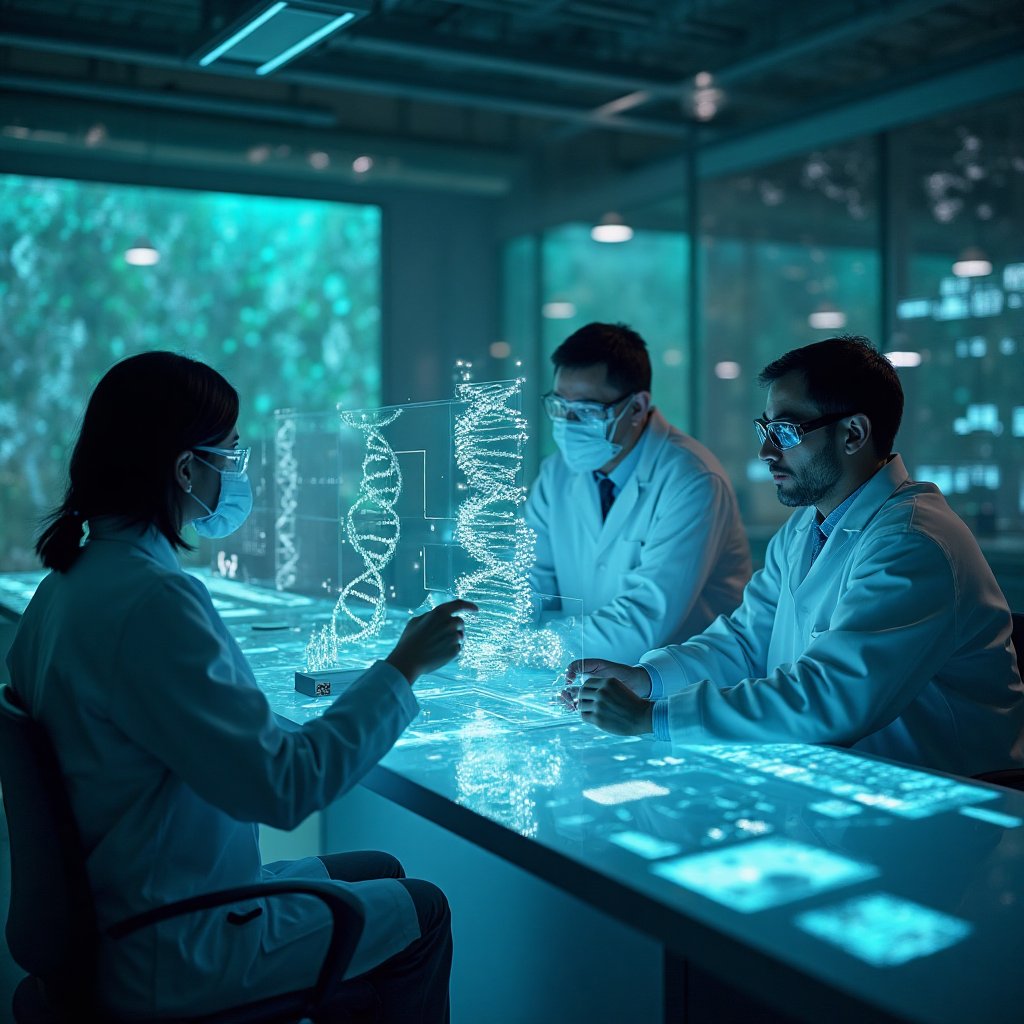
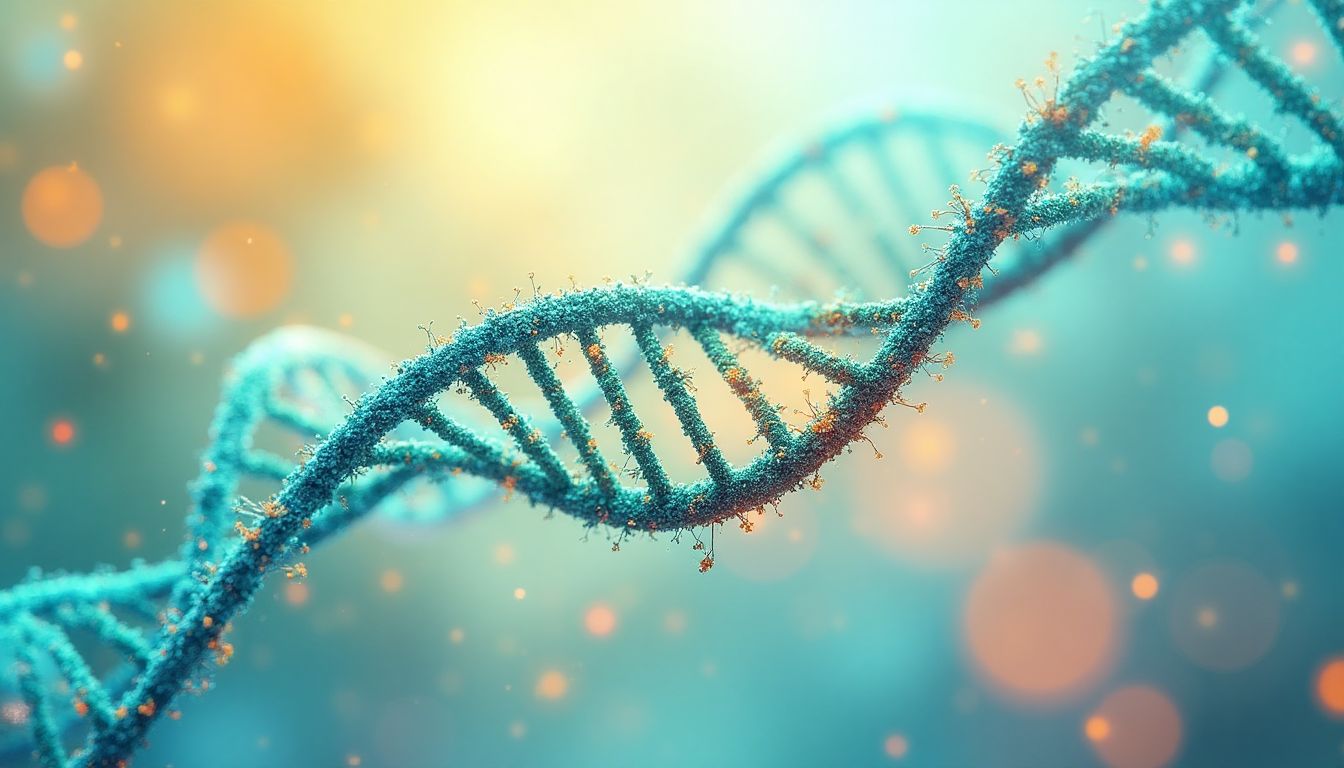
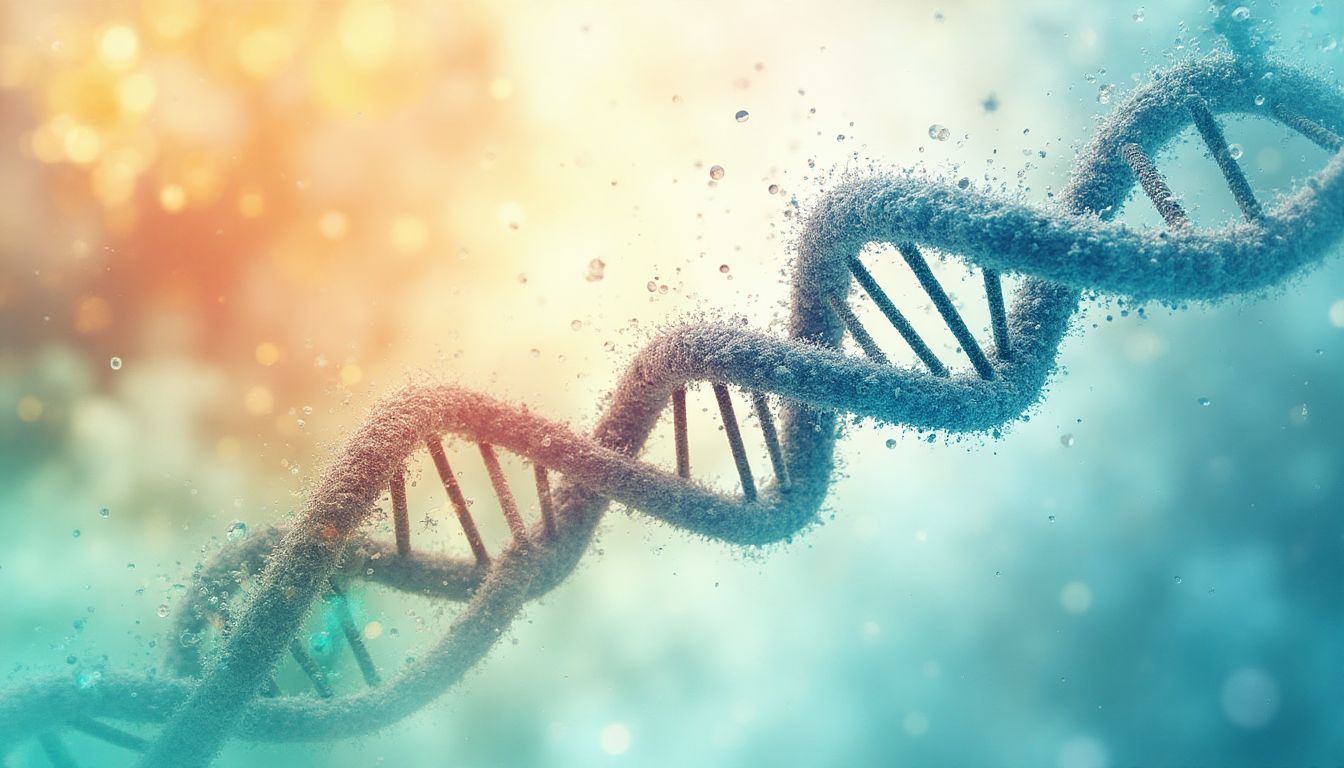
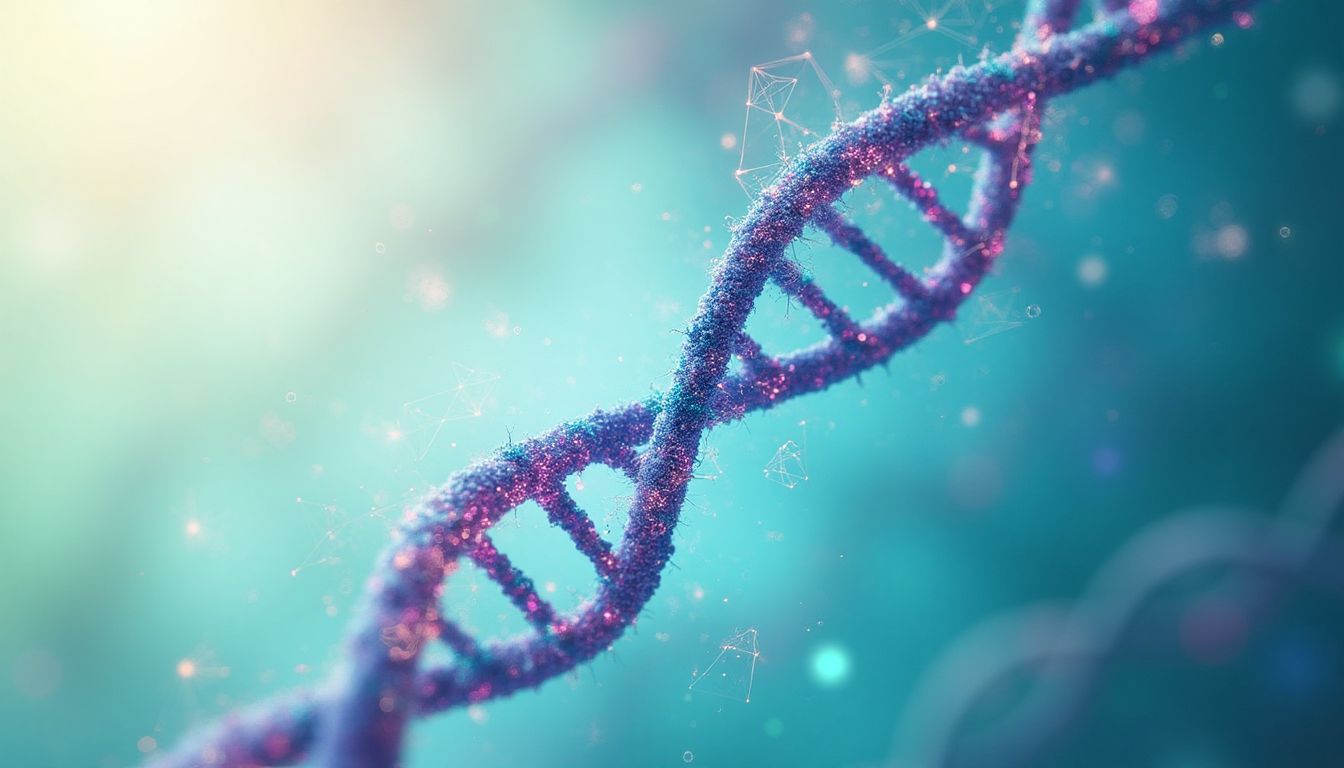
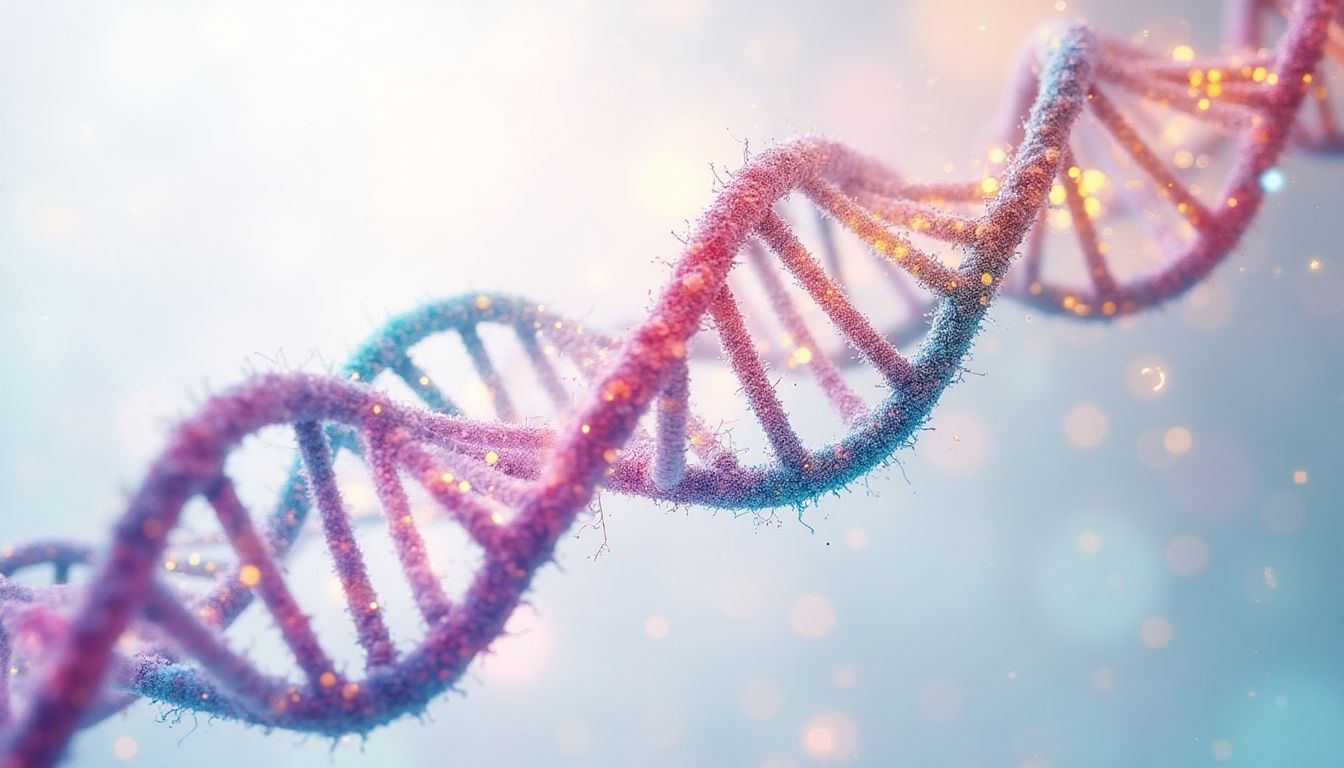
























Post Comment
You must be logged in to post a comment.